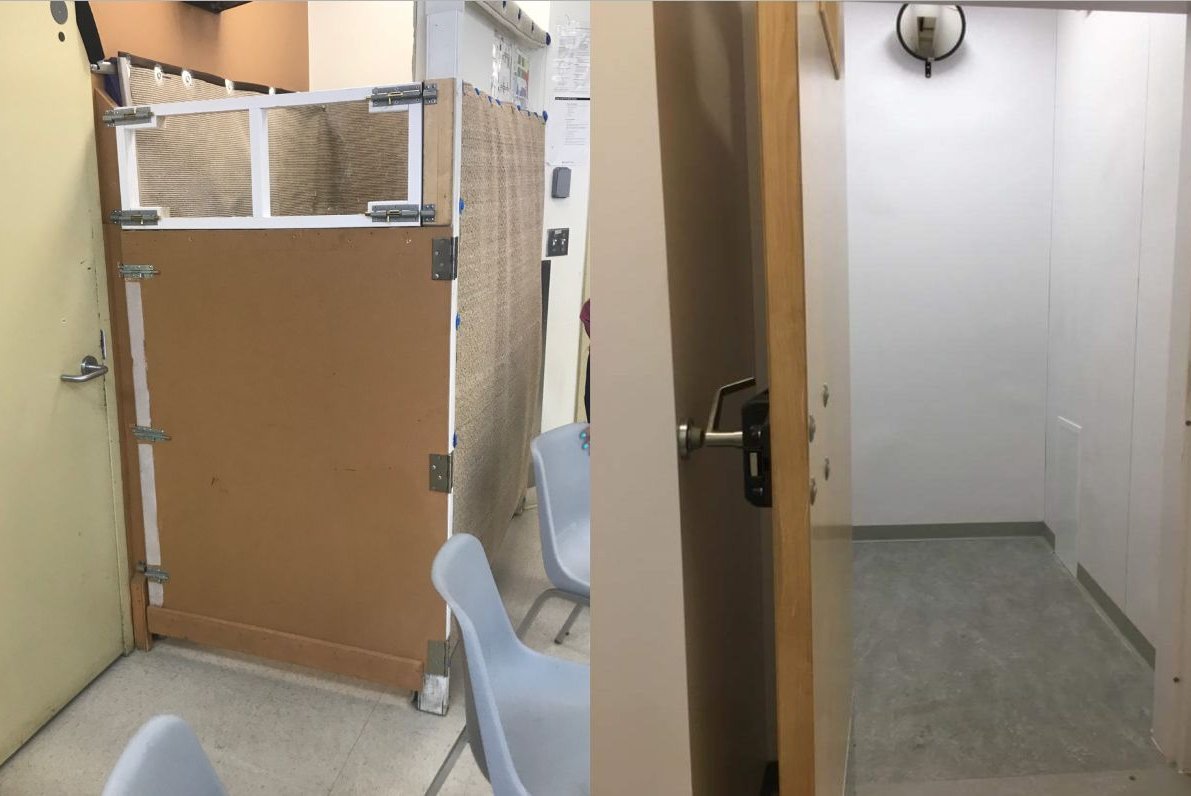A woman who filed a lawsuit against Alberta Education over an incident in which her son was locked in a seclusion room at school says she is “very disheartened” after her family’s case was dealt a legal blow earlier this week.

“We’re talking about locking up non-speaking autistic children in timeout rooms,” Marcy Oakes told Global News on Wednesday after she was asked for comment on the Alberta Court of Appeal upholding a lower court’s dismissal of her family’s claim against the ministry.
“I was so disappointed because I believed that the level of knowledge about what kind of an issue this really is about would be there, and it became clear to me very quickly that it was like dealing with regular society about special needs.
“I was really not surprised about a lot of the things that the judges said because it reminds me a lot of how society looks at children with autism or special needs or vulnerable children.”
Oakes and her son’s father had been seeking $250,000 in compensation for their son Aidan from the provincial department and a school division over a 2015 incident in which the student was put into a seclusion room at Clover Bar Junior High School in Sherwood Park.
READ MORE: Alberta-wide review of school seclusion rooms coming
She alleges her son was left in the room naked and found covered in his own feces.
“Parents need to be able to feel that their children are safe at school,” Oakes said on Wednesday.
“What happened that day… to my son… I just truly felt compelled that we needed to take the very negative trauma… and create some good in it and change things in the province for other children with special needs and autism, and the parents,” Oakes said when asked why she took the legal action she did.
She and Aidan’s father said they never agreed to having their son locked in a seclusion room, nor was the procedure identified as part of their son’s positive behaviour support plan.

Get daily National news
Global News reached out to the education minister’s office but the department declined to comment.
Watch below: Some Global News videos about seclusion rooms in Alberta.
In the wake of the incident, the province’s previous NDP government took steps to ban the use of seclusion rooms in the province.
However, the UCP government lifted the ban last year, arguing that the rooms are “tools of last resort.”
READ MORE: Alberta lifts ban on seclusion rooms in schools
Proponents of seclusion rooms say they provide an option for schools when students with developmental disabilities act out and are potentially dangerous to their caregivers and teachers.
- Calgary’s mayor asks province to salvage parts of halted Green Line transit project
- Moraine Road RV residents get temporary extension while city seeks long-term solution
- Calgary police searching for sexual assault suspect after attack at swimming hole
- Calgary’s termination of Green Line adds extra frustration for expropriated Eau Claire residents
A report released last year found that the controversial practice was used 716 times in Edmonton public schools during September.
The report said that in 468 cases where the rooms were used, 65 per cent of the time the student chose to go in as a way of self-managing.
The other 248 uses involved a group of the same 88 students who were placed there as a result of unsafe behaviour.
READ MORE: New seclusion room guidelines to take effect in Alberta
The UCP government has brought in new guidelines for the rooms, including updated design requirements and a requirement that they must abide by all building, safety and fire codes. School divisions are also now required to report on their use of seclusion and physical restraint on a regular basis.
“It just seems there’s not a regard for the seriousness of this issue — on a provincial level and a national and an international level,” Oakes said on Wednesday.
She added that while she and Aidan’s father are weighing their options in terms of whether to appeal the latest court decision, their lawsuit against Elk Island Public Schools over the 2015 incident is still moving ahead.
On Thursday, a written judgment regarding the case was released. You can read it in its entirety below.
–With files from Global News’ Slav Kornik and Allison Bench
























Comments